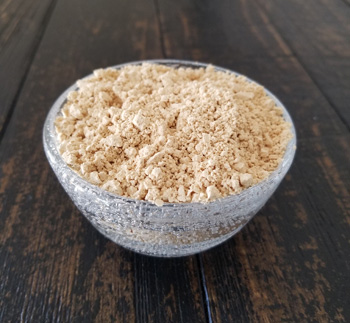Researchers Report Promising Results From Early Study but Warn Against Trying Their Technique at Home
By Miranda Hitti
WebMD Health News
Reviewed by Louise Chang, MD
Feb. 20, 2009 -- Eating a tiny bit of peanut flour every day may increase peanut tolerance in children who are allergic to peanuts, a new study shows.
But the scientists who conducted the study aren't recommending their strategy as a do-it-yourself treatment for peanut allergy.
"However encouraging, these results are preliminary and [the technique] should not yet be attempted outside clinical trials," the researchers write online in the journal Allergy.
The study was very small -- it included only four children 9-13 with peanut allergies. But last year, other researchers reported success when they tried a similar approach with 20 U.S. children with peanut allergies.
In the new study, conducted in England, the children took allergy tests and the researchers gauged the maximum dose of peanuts that they could tolerate without having a severe reaction. That test showed that the children couldn't tolerate a single peanut without quickly having an allergic reaction; one child needed an adrenaline shot after developing anaphylaxis.
Each child went home with instructions to eat 5 milligrams of peanut flour mixed with yogurt each day, gradually adding more peanut flour over the next six weeks. The basic idea was to ramp up their tolerance, little by little.
After six weeks of eating the peanut flour-yogurt combination, which didn't prompt any major problems, the researchers retested the children's maximum tolerable peanut dose. All four children could tolerate at least 10 peanuts at that point.
That doesn't mean that their allergy is gone, but it does provide a bit of a margin in case they accidentally consume a few peanuts, note the researchers, who included Andy Clark, a doctor at Addenbrooke's Hospital in Cambridge, England.
"We've got them to a point where they can safely eat at least 10 whole peanuts. It's not a permanent cure, but as long as they go on taking a daily dose they should maintain their tolerance," Clark says in a news release.








